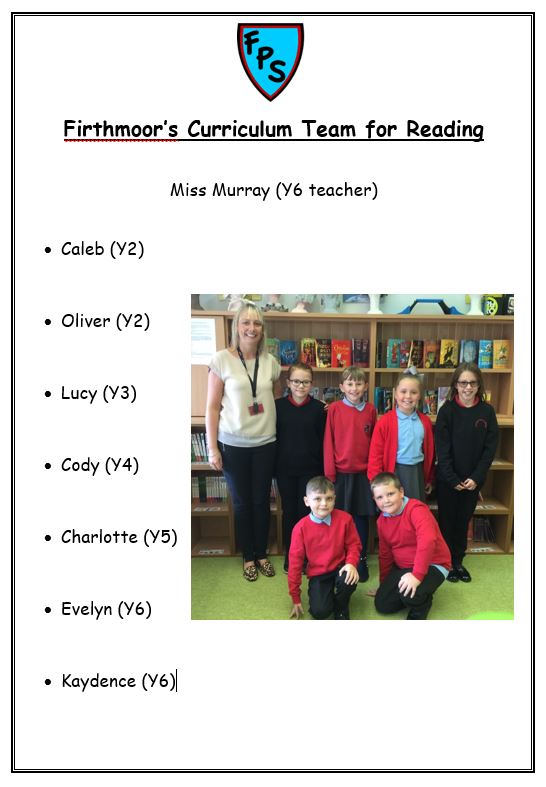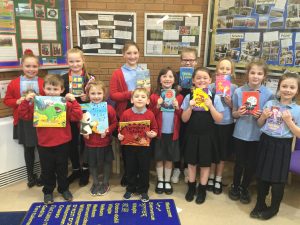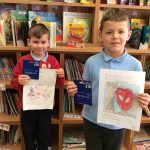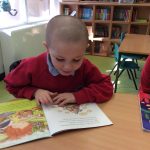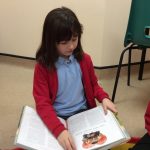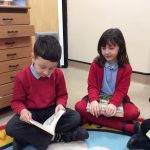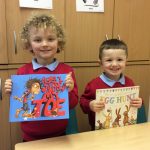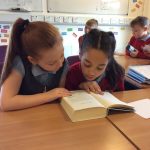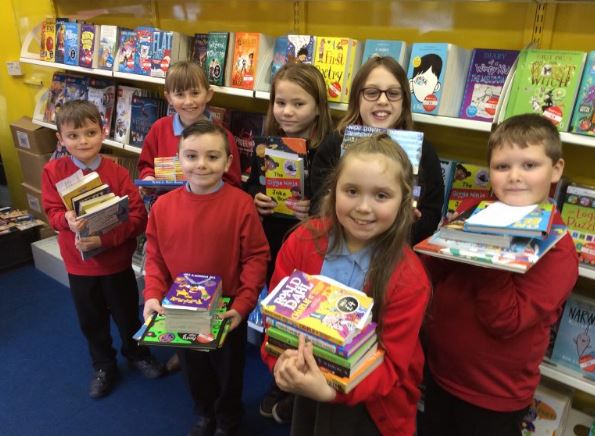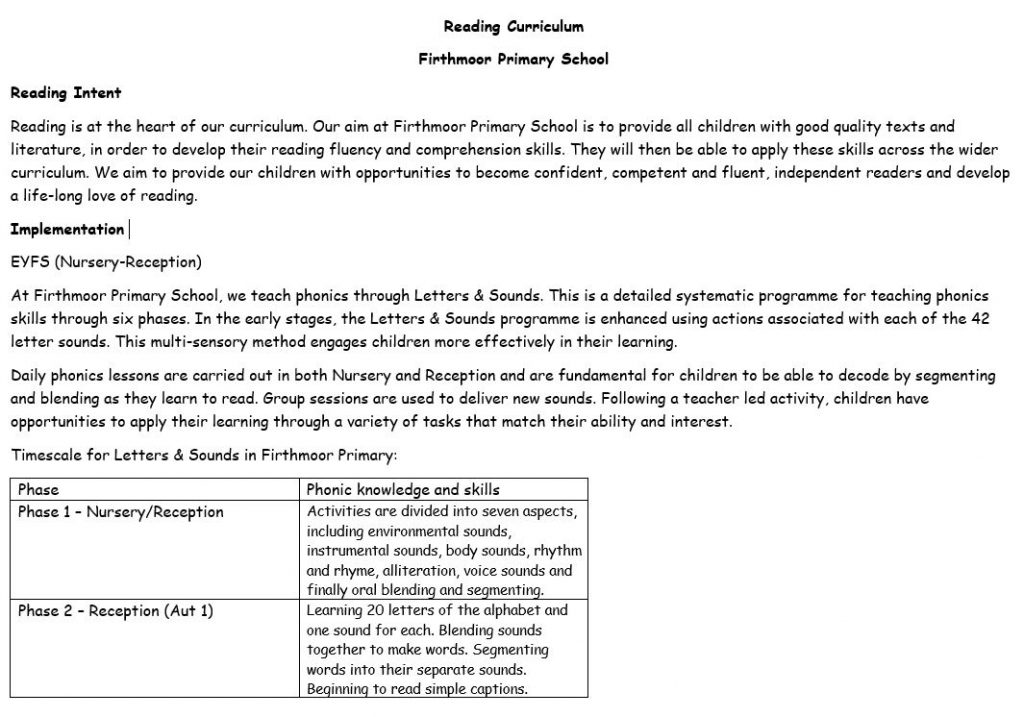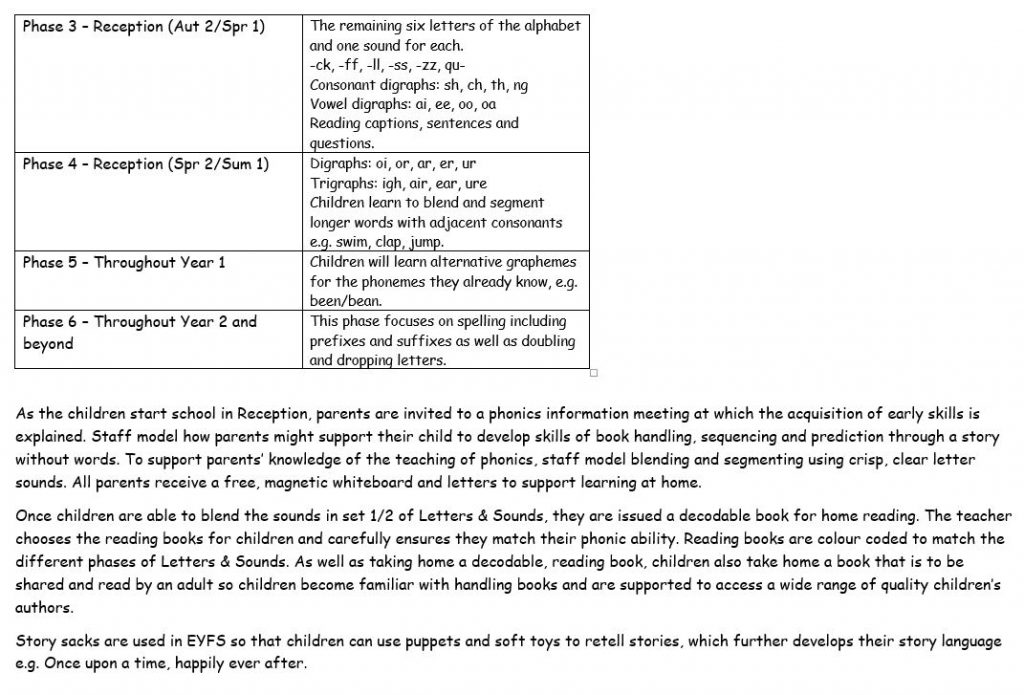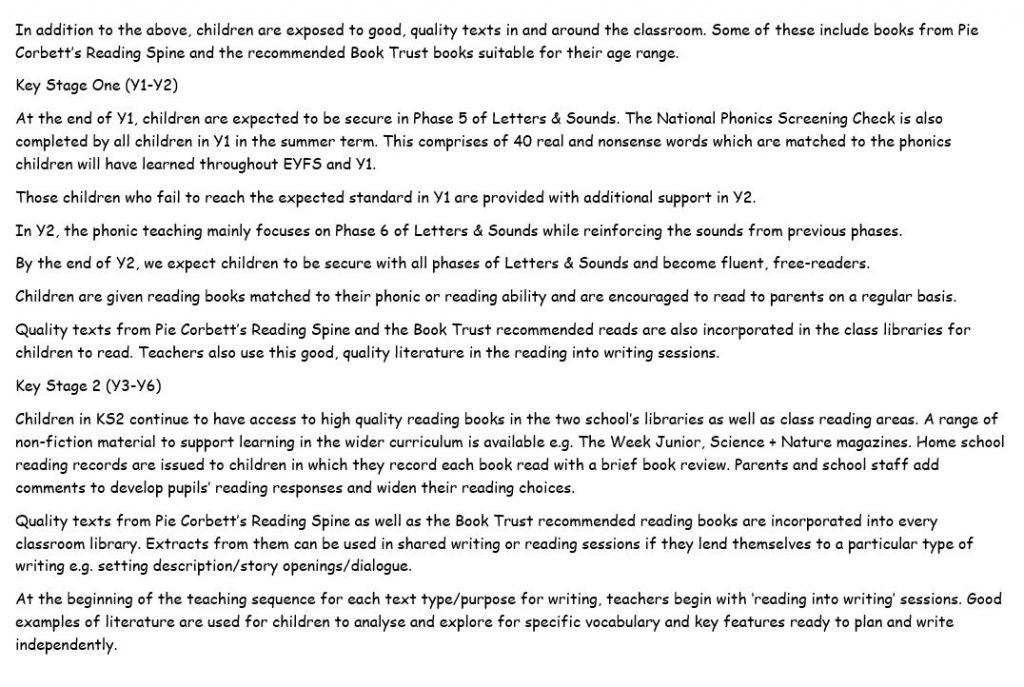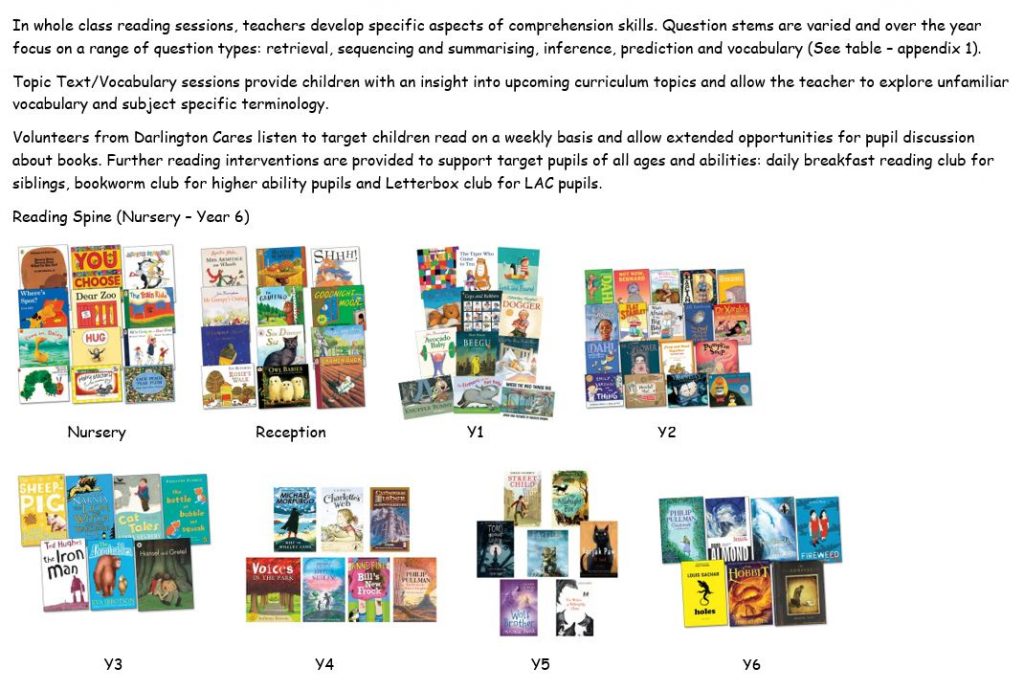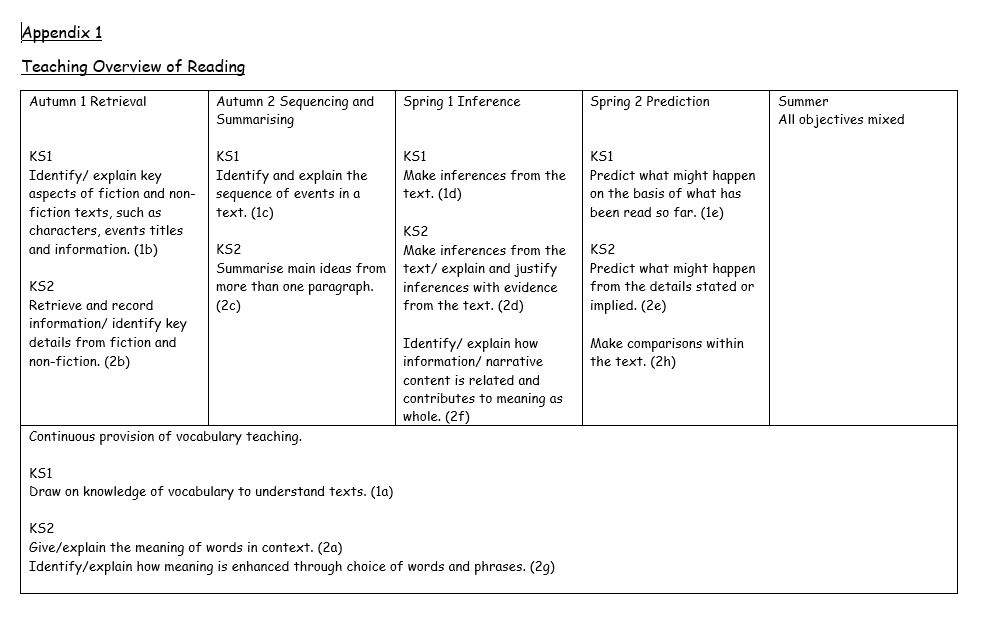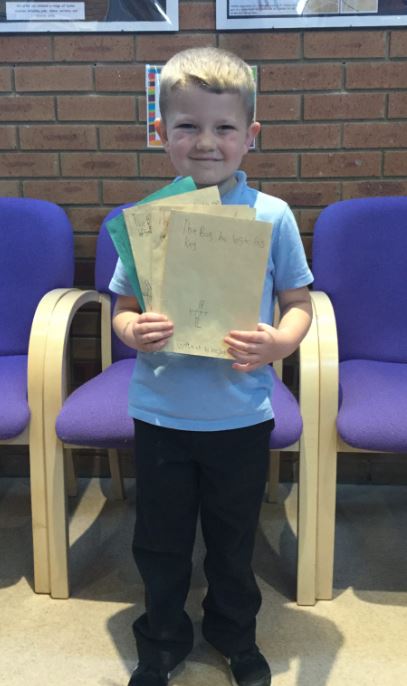Literacy
Literacy at Firthmoor Primary School
Reading
World Book Day (February 2020)
The children thoroughly enjoyed celebrating World Book Day on Thursday 5th March. Many boys and girls shared a book from home with their friends in class.
Every teacher held a class competition on World Book Day and the winners were as follows;
YR – Kenny, Y1WC – Justin, Y1LT – Amelia-Mary, Y2TH – Jamie-Leigh, Y2LJ – Layla, Y3/4VM – Lucy, Y3/4HI – Georgia/Cassia, Y4 – Pheobe, Y5 – Jasmine, Y5/6AW – Kaydence, Y6 – Leigha. All winners were rewarded with a book of their choice.
The winners from the ‘Draw your Favourite Book Character’ competition was drawn at the end of the day and the winning entries were: Tyler from KS1 and Seweryn from KS2. A book voucher will be presented to the two boys in next week’s Star Pupil assembly.
Visit from ‘The Book Bus (November 2019)
We have recently had a visit from The Book Bus. The Book Bus is a travelling book shop, selling a variety of children’s literature at discounted prices. All of the children were invited to bring in some money, as each class had an opportunity to visit the bus over the course of the day. The children in our Reading Team chose books for our school (see picture below) Parents and carers were also invited to visit the bus as it provided a fantastic opportunity to purchase stocking fillers for Christmas.
Writing
Pictured below is budding author Lee, with the stories he has recently written. We believe that if Lee keeps up with his writing, he could become as famous as Roald Dahl, J K Rowling or Julia Donaldson when he is older! The titles of his first stories include; The Boy Who Lost His Key, The Boy Who Couldn’t Drink Coke, The Boy Who Wasn’t Allowed To Eat Biscuits and Mike’s Balloon.
Over the course of a year, children are exposed to a wide variety of texts to support the many different genres of writing taught. These range from: stories, diaries, letters, chronological and non-chronological reports to poetry and play scripts.
During the planning stage, teachers model the writing process and children learn to make notes in preparation for independent work. All pupils are taught how to self-edit and improve their writing whilst older children are encouraged to participate in peer assessment. Dictionaries, thesauruses and classroom ‘Word Walls’ enhance spelling and develop vocabulary.
Marking ladders support the writing process, reminding children of their targets and promoting independence. Pink and green highlighters assist pupils in identifying positive aspects of a child’s work whilst providing editing tasks.
The development of a neat, legible handwriting style begins with a focus on developing children’s fine motor skills and accurate letter formation in the Early Years. All children are encouraged to take a pride in the presentation of their written work with the introduction of a joined handwriting style by the end of KS1.
Speaking & Listening
We view the development of good speaking and listening skills as a priority in ensuring that our pupils become effective communicators.
Speaking and listening is embedded in every lesson throughout every year group. Children are taught the characteristics of good speaking and listening in PSHE lessons, circle time activities and as a part of general classroom lessons where partner work allows children to share their ideas. Participation in drama lessons, assemblies and whole school productions provides further opportunities for our pupils to develop good speaking and listening skills in front of a wider audience
Spelling
Early spelling is linked with Letters and Sounds phonic teaching. From Y1, spelling lists and common exception words are displayed in each classroom. The ‘5-4-3-2-1’ minute approach is used to allow children to practise these spellings on a daily basis. Spelling patterns are also taught within Literacy lessons.
Children are encouraged to self-edit their work and correct any misspelt words.
The DfE National Curriculum Document sets out the framework for the National Curriculum at key stages 1 and 2 and states:
Writing down ideas fluently depends on effective transcription: that is, on spelling quickly and accurately through knowing the relationship between sounds and letters (phonics) and understanding the morphology (word structure) and orthography (spelling structure) of words
The word-lists for years 3 and 4 and years 5 and 6 are statutory. The lists are a mixture of words pupils frequently use in their writing and those which they often misspell. Some of the listed words may be thought of as quite challenging, but the 100 words in each list can easily be taught within the four years of key stage 2 alongside other words that teachers consider appropriate. Spelling lists are sent home with pupils on a weekly basis as part of their homework.
The links below detail the statutory spelling work for each year group(s)
It is a company limited by guarantee in England and Wales (Registered no:08027879)
Registered address: Ingleby Moor Crescent, Darlington, County Durham DL1 4RW


